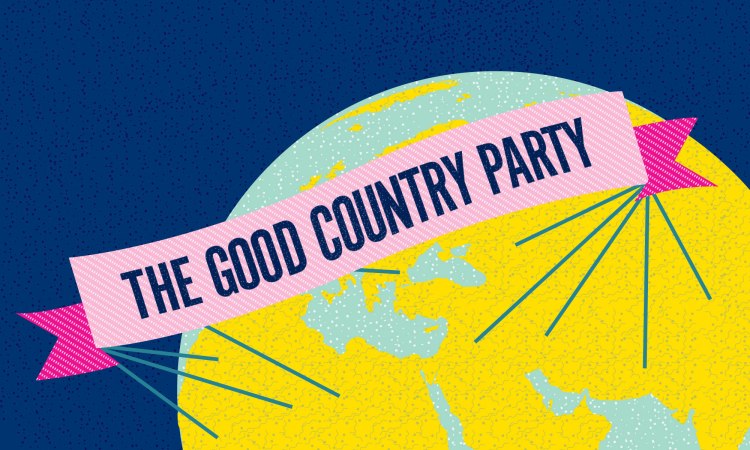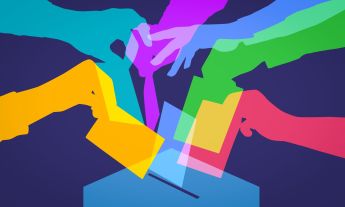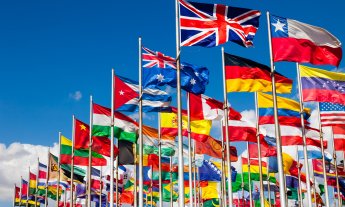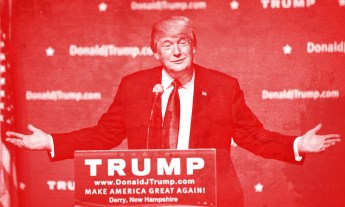
Do you think your country’s political system is broken? Simon Anholt has a solution: the Good Country Party, which looks beyond borders to include everyone from everywhere.
I’ve just started a party. It’s called the Good Country Party.
It’s not exactly a drinks party, because for starters I’ve invited 700 million people to join. And it’s not exactly a political party, because I’m getting sick of politics and we won’t be standing for election. Actually, we can’t stand for election, because the Good Country Party isn’t located in any country: it’s located on the internet and it’s a party for everyone, everywhere.
So what kind of party is this?
It’s a party for people who feel frustrated at the way things seem to be going. Every day, we read in the newspapers that people are fighting and starving, we’ve broken the weather, the economic system is in turmoil, the threat of nuclear war is back again, drug trafficking and cybercrime and slavery have become huge uncontrollable global businesses, and religions, instead of preaching peace and tolerance, are fighting each other more bitterly than ever.
But somehow it’s become impossible to do anything to make these things get better. That should be the job of politicians, but each year that passes, the overgrown schoolboys squabbling in our parliaments focus on smaller and smaller and more and more local issues — probably because somebody’s told them that there are no votes in foreign affairs.
So we can vote on things that affect our neighborhoods, but we have no way to vote on what happens to the present and future of humanity. We end up leaving the big issues to international organizations such as the United Nations and the World Bank; but they only have as much power as their member states are willing to grant them, which is virtually none because the one thing national governments don’t want is to grant someone else enough power to restrict their own behavior in any serious way.
Global problems need global solutions, and we need to work together. But it’s hard to tackle 21st-century globalized problems as 18th-century self-serving nations.
So this is where the Good Country Party comes in. Its aim is to change that pattern and get everybody — governments, their voters, companies and NGOs — to pay more attention to the bigger picture and help the whole of humanity instead of just endlessly helping themselves. It’s for those of us who want to become good ancestors, and leave a functioning planet for our children and their children.
Truth is, global problems need global solutions, and we need to work together. But it’s hard to tackle 21st-century globalized problems as 18th-century self-serving nations. We desperately need to collaborate, but we are configured to compete. We’ve reached a point in history where the struggle against the common enemies of all nations is much more important than the struggles between nations.
So what needs to change? The way countries, cities, regions and companies are run. Our politicians and corporate bosses need to understand that they have a new mandate: not the traditional single mandate that holds them responsible only for their own people and their own slice of territory, but a new, dual mandate. A mandate that says everyone in a position of authority is responsible for their own people and for every man, woman and child on the planet; for their own slice of territory and for every inch of the earth’s surface and the atmosphere above it.
That’s a big responsibility, but a necessary one. And it’s perfectly possible, because national and international interests are much more compatible than most politicians imagine. My own experience as a policy advisor for more than fifty governments over the past twenty years has shown me that dealing with domestic issues from an international viewpoint is nearly always more effective than having a myopic inward focus. Simply put, it makes better government.
We need to learn a new culture where narrow-minded, selfish nationalism is no longer acceptable.
How realistic is the dual mandate, you may ask? Well, I’m not suggesting that leaders give equal priority to the whole of humanity and to their own voters or employees. It’s natural that they think first of the people for whom they are directly responsible, but things need to evolve so that in a few years it becomes simply unacceptable for any leader to make any decision without considering, very seriously, the consequences of that decision on the rest of humanity and the whole of the planet. In the same way that we’ve started to learn a new culture where sexism and racism are no longer acceptable, we need to learn a new culture where narrow-minded, selfish nationalism is no longer acceptable.
Our leaders won’t change unless and until they realize that we, their voters and citizens and employees, want them to change — and help them to do so.
Do we have the strength for that? Well, this is why I think 700 million people are going to show up to my party. Why that many? According to a calculation carried out by Dr. Robert Govers and me, based on data from the World Values Survey, 10.9% of the international sample polled responds positively to questions relating to their global outlook, tolerance and sense of world citizenship. That means 700 million people on this planet are naturally cosmopolitan, and have no trouble imagining the whole of humanity. They believe that the planet is everybody’s direct and shared responsibility, they live all around the world and as you might expect, many of them are young: the generations brought up with the internet, on the whole, have a more international outlook than their parents and grandparents. But this mindset is absolutely not restricted to wealthy, educated westerners.
So that’s at least 700 million people who believe that nations can’t make it on their own; ten percent of the world’s population who believe that you can love your country without hating other countries; that collaboration is as powerful as competition and even more necessary; and that foreigners aren’t enemies to fight or competitors to outsmart, but members of the same human family who happened to have been born on a different part of the same blue speck of dust we all inhabit.
It’s for those people that I’ve started the Good Country Party. Membership of the party is free and open to anyone, anywhere, of any age. All you have to do is register. Sure, we can’t run for government, but we don’t need to. Once membership is big enough, we will have enough influence to sway policy in most countries from the outside, and to help our leaders to change.
The goal is to create a big space where we can meet and discuss and we can decide what we’re going to do together. It’ll be productive and collaborative and positive. I don’t want to harass and shame politicians or employers into behaving differently, because not only is that bad psychology but it also doesn’t work. The Good Country Party will give the human race and the planet a voice. After all, we don’t need a world made of competing, grasping, selfish countries. We need a world of good countries, and we need to start making that world right now.
Featured illustration by Dawn Kim/TED.











